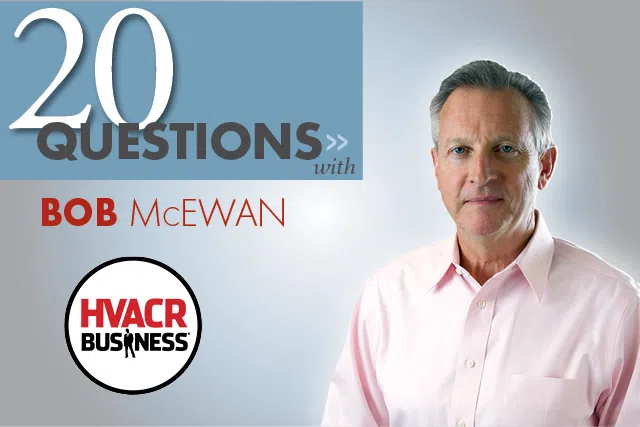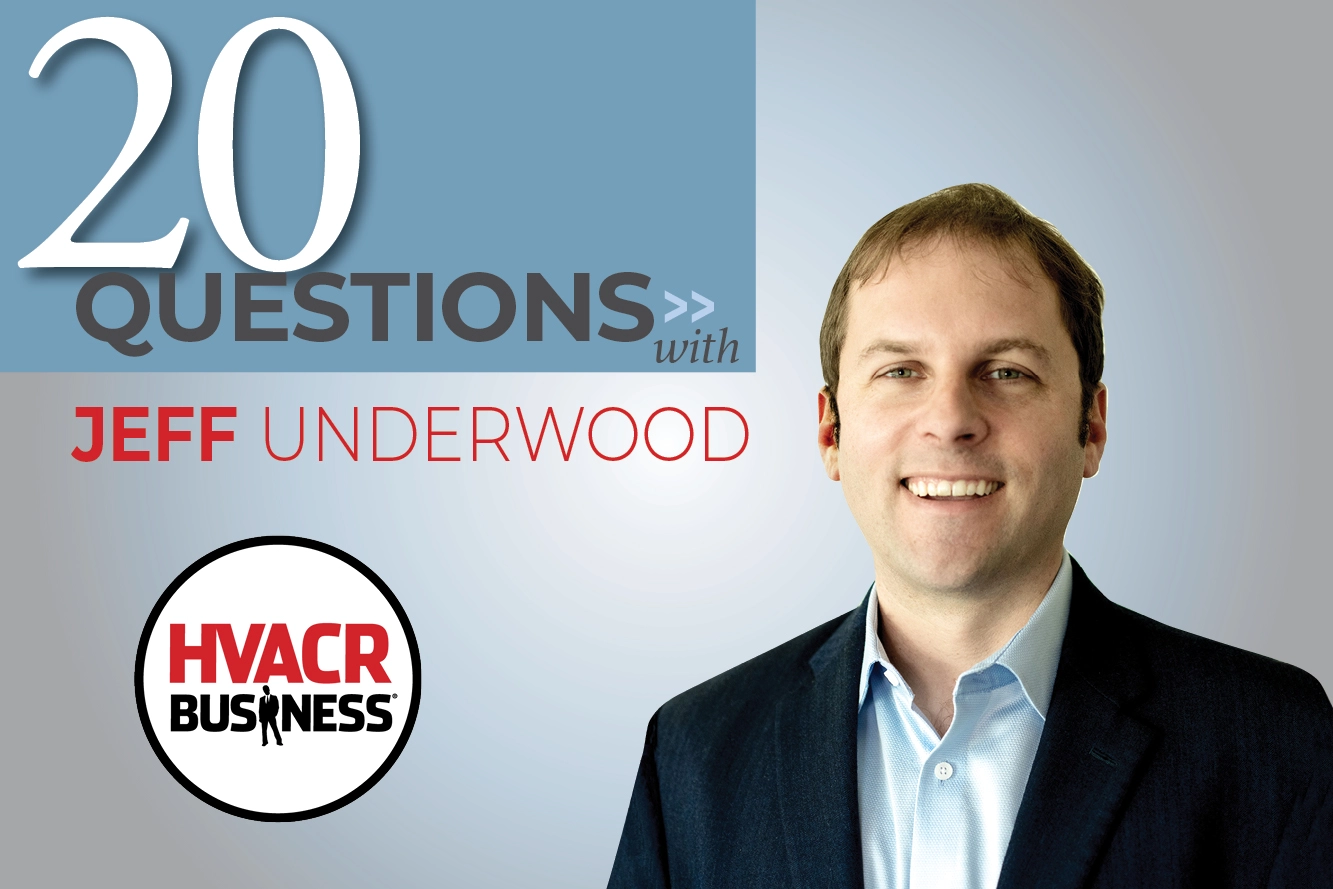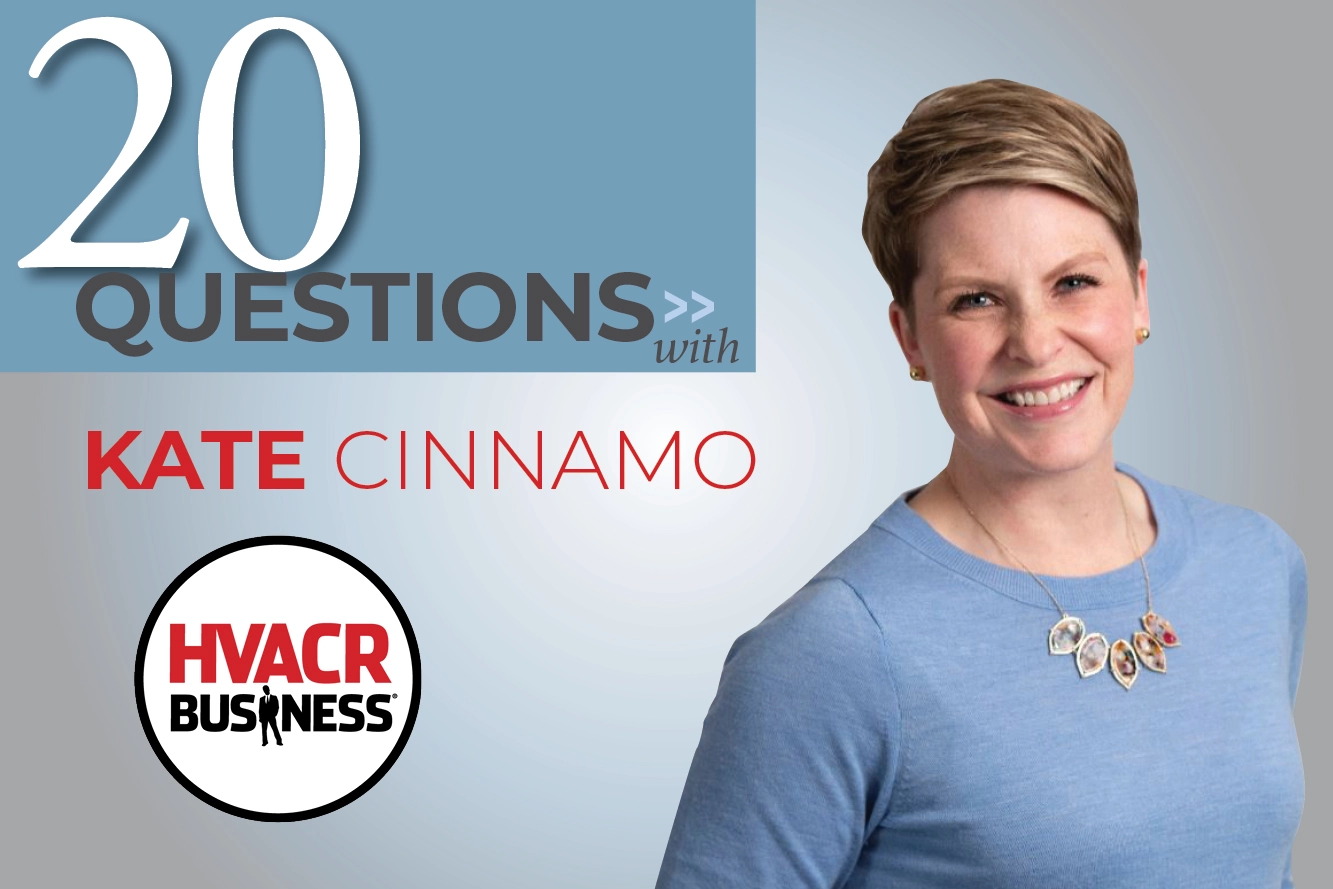HVACR Business Publisher Terry Tanker recently met with Bob McEwan, retired general manager of GE Aviation's global supply chain. The two discussed how to motivate a team, what it means to be fair and why Millennials have potential to become great leaders. McEwan recently authored the book, "5 Fundamentals to Unleash Millennial Talent: Discover Your Inner Leader."
1. How did you manage to stay at GE Aviation Business for 34 years?
I just really enjoyed it: designing, testing, and building jet engines for a living. Once they tried to move me to the appliance division but it was a tough sell ... refrigerators or jet engines. I stuck with aviation. Jack Welch, would always say, "You aviation people, you never let your people go, and they never want to leave." He was big on moving great people, and leaders around from one business unit to another but I didn't want to go.
2. How did they measure performance at GE?
Consistently and persistently — you received a review every year, it was written and approved by your superior and then presented to you. It was formal with a lot of metrics as you would expect regarding profit, working capital etc. but very little on leading, mentoring and growing subordinates.
3. What was lacking from that formal process?
You very rarely ever spent time reviewing things like, "How well did Bob manage his people this year? Did anybody grow? Did he help anybody get promoted? Was his team under-performing and now they're performing at a high level? Do people want to work in his group? Do they enjoy working with Bob? Did he inspire them?"
4. How do you measure those types of questions?
It's difficult. I spent time trying to develop my own metrics and philosophy, because I knew the power of people and the power of organizations. When you motivate and drive and get people excited about a common goal it's amazing what they can accomplish.
5. What did you come up with?
There are five fundamentals I developed over the years. I call them the Five Fs — Firm, Fair, Friendly, Family and Faith. I was able to teach these principles to our emerging leaders at GE Aviation's semi-annual leadership classes.
6. Which F is the most difficult to learn?
Being Firm was the hardest for me because I always like to please people, keep everybody happy. Jack really taught me how to be firm, sometimes being firm is the only way to get things done. It's hard for a lot of leaders because most people don't like confrontation. Sometimes you have to ruffle a few feathers.
7. What's the key to being a firm leader?
Communication. Jack said you have to tell people what's expected of them and communicate it. Simplify communication and follow up, over and over and over again then you have to measure it. When they know you mean business, people are going to follow you.
8. What type of person makes the best leader?
I really believe anybody, any personality, can become a great leader. You have to know who you are and what your strengths and weaknesses are, then build around both. But if you can't admit you have a few shortcomings, then you're going to struggle to be a great leader.
9. Why is it important for a leader to build trust?
If you can't trust your boss, if you don't feel comfortable in your work environment, if you're always looking around the corner you'll never build a winning team. When you're honest and fair, they'll respond.
10. You've said it's important for the boss to bring a positive attitude every day — Why?
I learned early on, people watch the boss — you set the tone as soon as you walk in the door. Besides who wants to work with a negative person? It's your job to bring positive energy and a can-do attitude every day. It's so important.
11. That's not something you can fake, is it?
No, you can't be phony about it. Sure, there are some things you don't like to do. Don't do something where you're really trying hard to have fun, because if you're phony about it, they're going to figure you out. Just be yourself and have fun.
12. How do you build a team?
Teams within organizations are so important and are so much more powerful than individuals. Having a sense of a family, sharing a big goal, and showing individuals how they fit in and why their contribution is so important and makes everyone start to understand we're here for the greater good. Once you have that understanding you've got a good team.
13. What's one of the more difficult aspects of managing a team?
There's always superstars, and as a leader, you have to know who these people are — identify them, understand them, promote and grow that talent. Put the right people in the right places at the right time and it can really help your organization grow — and keep them convinced this is their role on the team right now.
14. Where did you get your sense of leadership?
From my parents and how I was brought up. My parents were very thoughtful and fair. There were countless times their actions spoke louder than words.
15. Do Millennials have poor social skills?
To a degree, but you could say that about every generation. The Millennials have something no other generation has had — a social network that by comparison is absolutely huge. And, poor social skills can be learned and improved upon.
16. What advantage do Millennials have?
They're socially connected to a lot of people locally, regionally, nationally even worldwide.
17. How can they leverage this advantage?
Through that sense of family and belonging, within the social groups they belong too. They're not afraid to connect and get to know people. My network was built over years and years because we didn't have access to the communication tools they have today.
18. Can they become good leaders?
Yes. Individual skills come over time. I wasn't good at managing people when I first started. When I was 31, I didn't have the skills today's 21-year-olds have.
19. So you learned from your mistakes?
I worked at learning how to do more and more and more. I did a lot of it wrong in the beginning but I learned, and I just kept practicing until my skills became better and better.
20. Did you ever think you'd write a book on leadership?
No, especially considering I'm a math and engineering guy. But, I really have a passion for building teams, leading and accomplishing goals.






